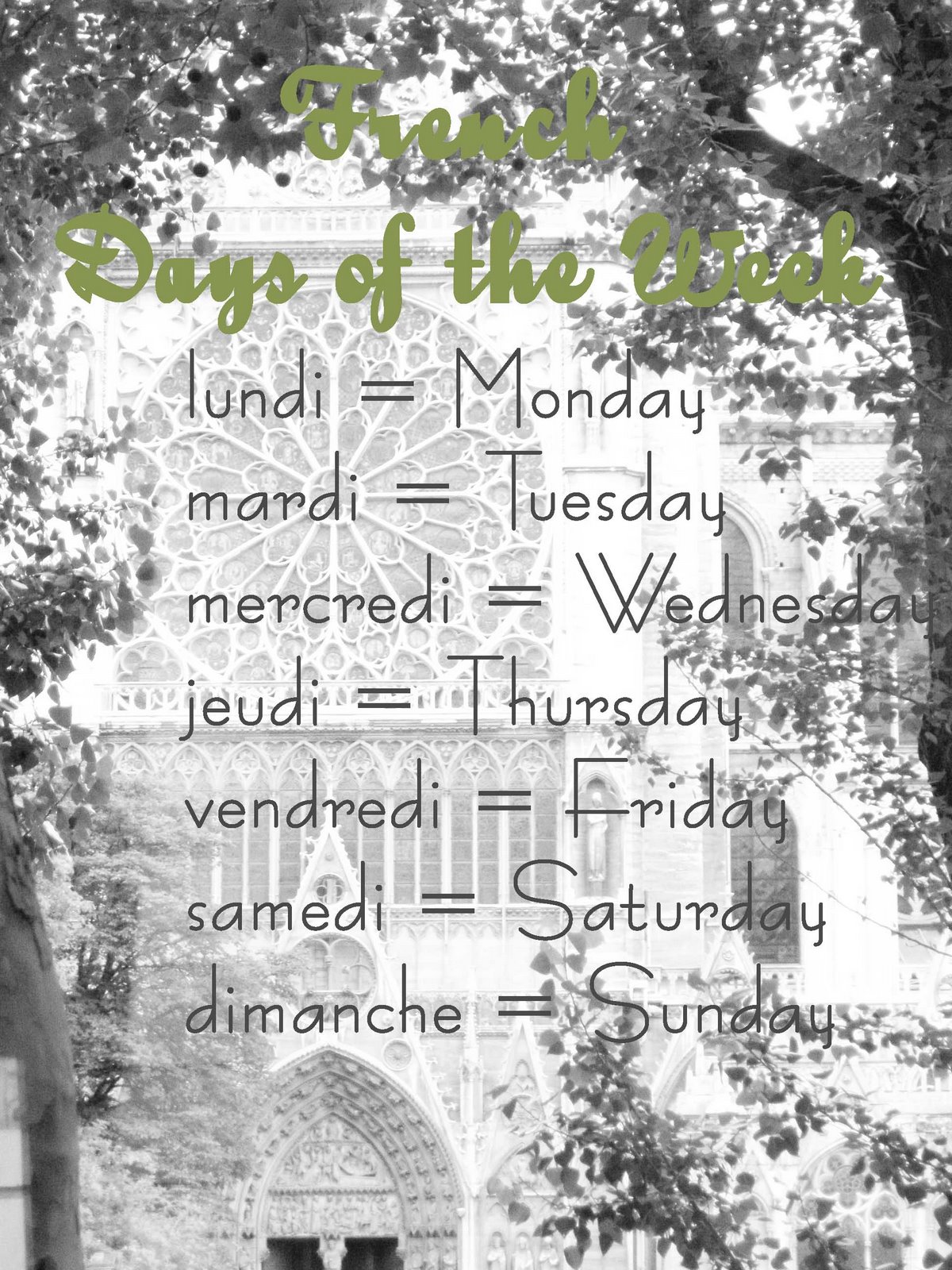
Flickr
Coucou (Hi!), mes étudiants, I hope to share with you some very helpful tips in today's lesson!
There is something so innocent and playful about the girl in this photo. (However, her shoes look a little chunky for such a sweet feminine look.)
This photo is part of your homework, so take a good look!

by photo Rhino - Flickr
Today's objective:
- Adding accents on your posts and comments
- Using an online link for French pronunciation
- Vocabulaire - Days of the week & seasons
- Making C'est negative

by mfpierre - Flickr
Adding accents on posts and comments
Many of you have asked me how to add French accents while blogging, so I figured that this may be something worth adding in a French lesson! Okay, the only way I know to add French accents is somewhat time consuming, but it is worth it to me (as a French teacher!) to add these accents.
Step by Step instructions for adding French Accents:
Open up a Word document
Go to Insert tab at the top on the toolbar
Click on Symbol
Choose a language - "French- France" (You must choose French- France as there are many other French speaking nations (and I am teaching you France French- Wow, that's a tongue twister!)
Then you will see a box full of lovely accents. You must scroll through this box to find the symbol that you want to add.
Click on the desired symbol.
Click Insert button at the bottom of the box.
On your Word document you should see the symbol had been added.
Then highlight this letter/symbol.
Right click- Copy or go to Edit tab and click Copy.
Go to desired place on post draft or comment box and right click Paste.
So I wonder how many of you are rolling your eyes, thinking forget that! That's way too much trouble! Well, I understand. However, did you know that the French consider a word misspelled if it is missing an accent???
Here's a tip:
Open up a Word document and add all of the common French accents that you usually need. (By the way, the first letter/symbol that you add will automatically capitalize itself when you make a space after it so insert the first symbol twice!) Then save it as a French accent document. Then all you have to do is open up that document at the beginning of the day. Minimize it. And when you need it maximize it. Copy. Paste. Voila!
Commonly used French accents - à â ç è é ê ô À
Now if you want to be really efficient with your time (I won't say lazy;), copy these accents from this post to a document and save it!
Note: There are also shortcuts on the keypad using the ALT key; however, I have never used these. Does anyone out there use them while blogging?
French Pronunciation Online link:
I was given this link from one of my blogger French students - Charlotte. I only spent a few minutes on this site, but I did see that it offers pronunciation for the days of the week in French. I hope you find this link useful! Merci, Charlotte!
Vocabulaire - Les jours de la semaine
Two things to note about the French language:
1. They do NOT capitalize their days of the week.
2. Their week begins on Monday not Sunday.

by à la parisienne :)
Vocabulaire - Les saisons
I also decided to add the seasons to our lesson today- sorry no pretty image!
le printemps = spring
l'été = summer
l'automne = fall
l'hiver = winter
Here are some ways you can use what you have learned up to this point on your blog:
C'est + a day of the week
Example
C'est lundi = It's Monday.
C'est + a season
Example
C'est le printemps = It's Spring
I had a blogger leave a comment about a song suggestion for my Playlist called "C'est le Printemps" by Léo Férré. I tried to look it up on my Playlist, but was unsuccessful. If you find it, let me know. Merci, Orane!

Flickr
Okay, the last portion of this lesson is an extension to lessons 1 & 2. If you are a new student, you will find it helpful to see the previous lessons. Lesson 1. Lesson 2.
Making c'est negative
Beginner
Okay, in French to make a statement negative you add ne... pas around the verb.
C'est = It is. (Remember this is for a singular noun- person, place, thing, idea)
Ce n'est pas = It is not.
(Notice the spelling. For those of you wondering... the French do NOT like it when certain two vowels touch one another. So the e on "ne" is dropped when it preceeds a verb with a vowel sound.) I could explain more, but I think that it would get very confusing. For now, take my word for it. In future lessons when you see more examples, you will understand the "rule."
So how would you use this new skill with what you have already learned? Do you remember the list of easy adjectives? Here they are once again!!!
adorable,agréable (nice, pleasant), artistique, bête (dumb,silly, stupid),bizarre (weird, strange, odd), chic, classique, comique (funny/comical), drôle (funny), fantastique, grave (serious), logique (logical), magnifique, populaire,rasoir (boring) ridicule, romantique, stupide, unique
Examples
Ce n'est pas agréable = It is not pleasant.
Ce n'est pas bizarre. = It is not weird.
Ce n'est pas jeudi. = It is not Thursday.
Ce n'est pas, Charotte! = It's not Charlotte!
Intermediate/Advanced
Okay this is something that I don't think I would have ever taught my French students, but since I am the ultimate authority, I am going to teach you some SLANG! Yippie! If you are a proper, native speaker, you may not like this!
Often times in French songs and informal speech the "ne" in ne... pas is dropping leaving the pas to carry the load to make the statement negative. It's somewhat like what we do in our English language when we say don't instead of do not or can't instead of cannot. The French language also has ways of becoming informal and slang.
Ce n'est pas becomes C'est pas
A common phrase I heard in France with c'est was C'est pas grave. especially after I may have apologized for a minor mistake. C'est pas grave can mean "It's no big deal" or "Don't worry about it." This phrase may be quite useful in blogging or correspondance.
Well, that's the end of today's lesson and all on lessons concerning c'est! Next week we will be looking at some fun vocabulary that I think you will find quite useful!
Also, I have decided to give out a "French student" award for each lesson based upon attendance, creativity, and participation! I will announce who receives this award for Lessons 1, 2, and 3 next week! You have all done so well. Your captions last week were well done!
Now for this week's homework:
Make a caption for the first image. Share what you think about this image by leaving a comment in French on this post. And, of course, those of you in the advanced proficiency catergory, please share!